BYB Tech Releases Chrono Timing System
BYB has released their new Chrono timing system. The brand, best known for its data acquisition systems, aims to offer a simple way for both mountain and motocross riders to track and compare their runs. With a high-accuracy multi-constellation GPS offering a 25Hz update rate, riders have the option of four different setups.
There is the GPS-only mode, GPS with a wheel speed sensor, GPS with an external trigger, and GPS with both a speed sensor and external trigger. The system looks to be a hybrid between the cone-timing systems that have traditionally been a part of team camps and parts testing, and the helmet-mounted devices one might be more familiar with in motocross. It can be used either in a lap function, with one cone or trigger, or in a run format, with two triggers.
With the data recorded, it can then be viewed on the mobile app.
The GPS device itself can sit on top of a rider's helmet or be attached to the fork. Although in mountain biking we have a very granular approach to line choice, where sometimes a few centimetres can make all the difference, in other sports that use wider tracks a rider could potentially benefit from being able to contrast and compare different racing lines with their timed runs. While analysing the effects of different line choices won't be hard, perhaps always understanding how it was achieved might be a little harder to read via the map when things you're being very precise. You can then overlay these runs in the app, as well as analyse other data.
GPS devices start from €299. For more information visit bybtech.it
Author Info:
Must Read This Week
Sign Up for the Pinkbike Newsletter - All the Biggest, Most Interesting Stories in your Inbox
PB Newsletter Signup
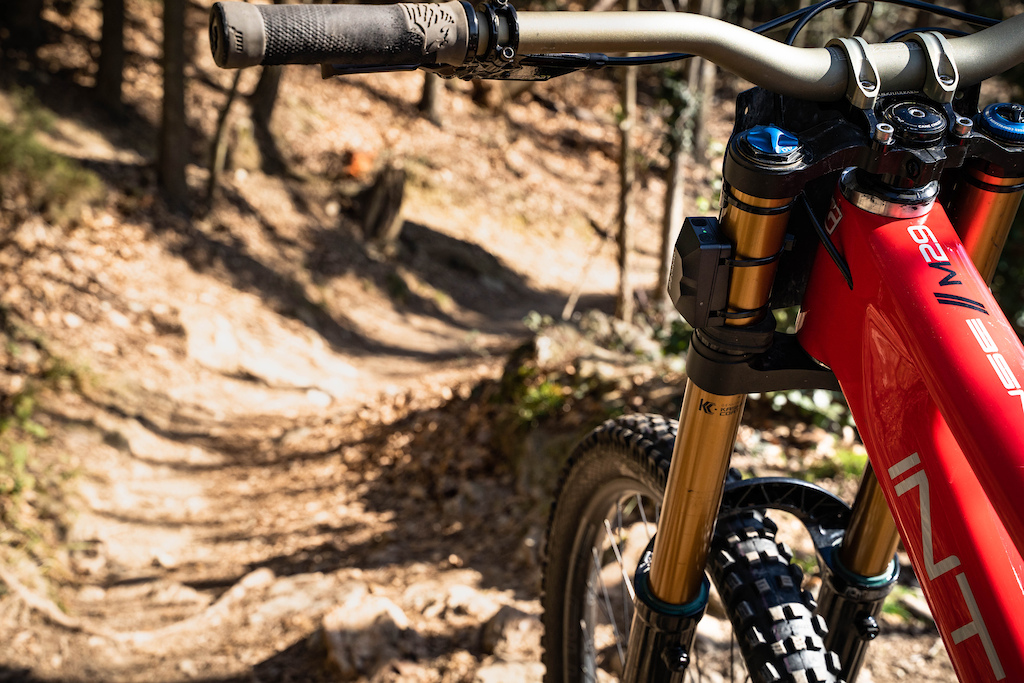
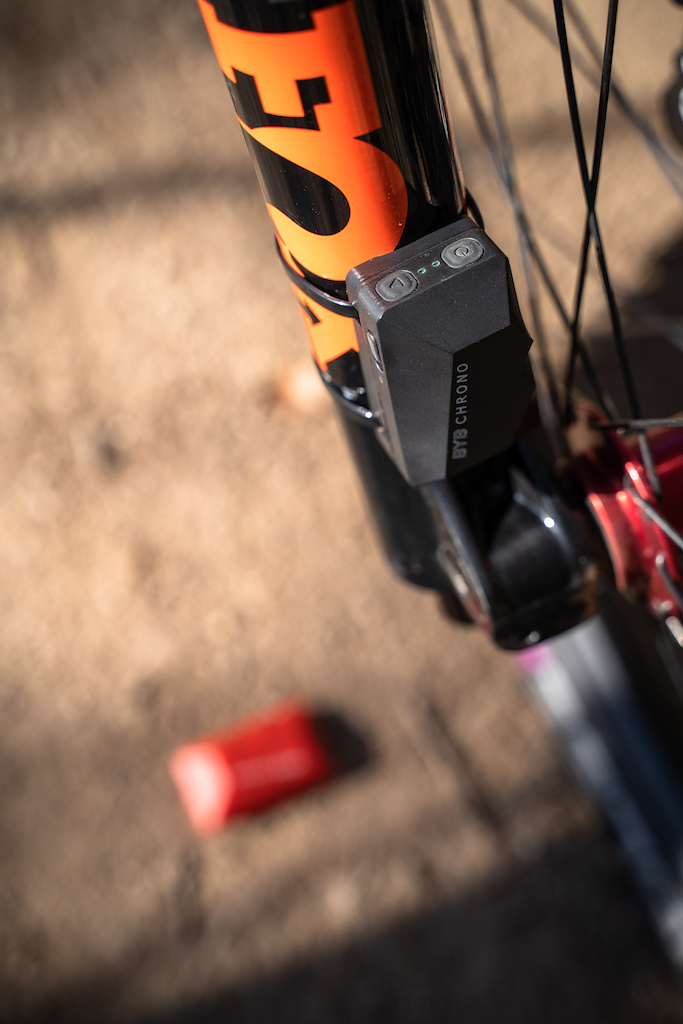
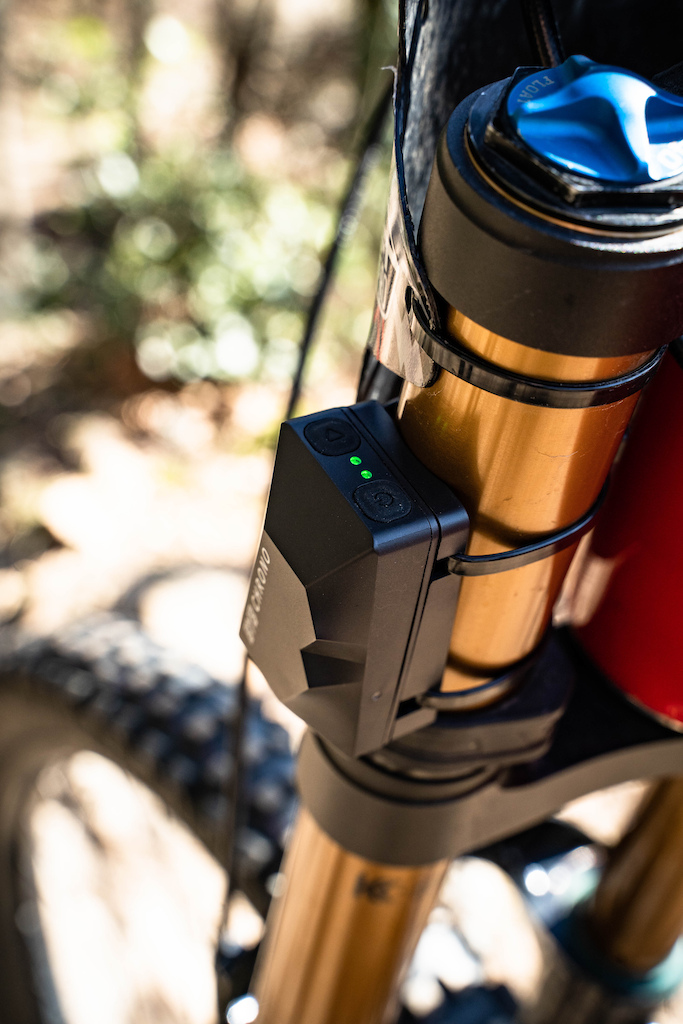
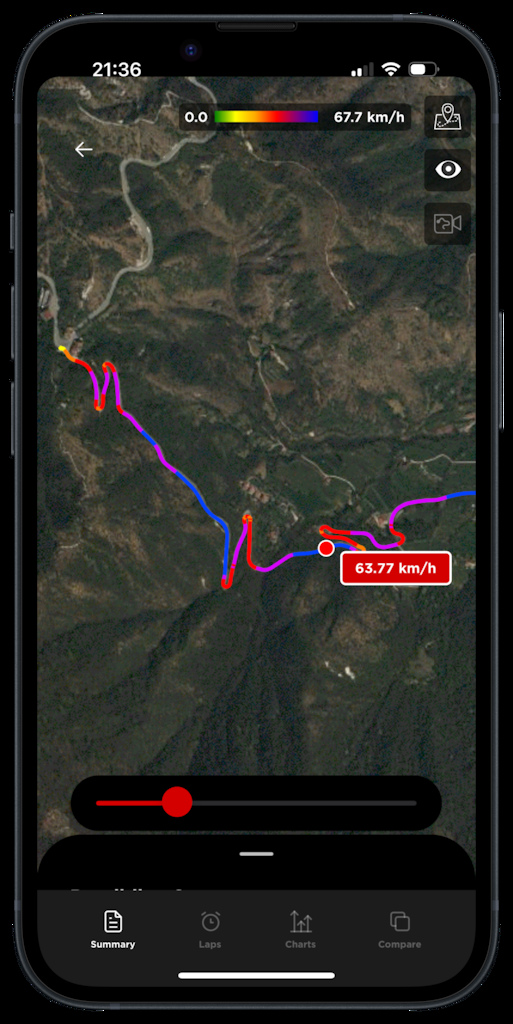
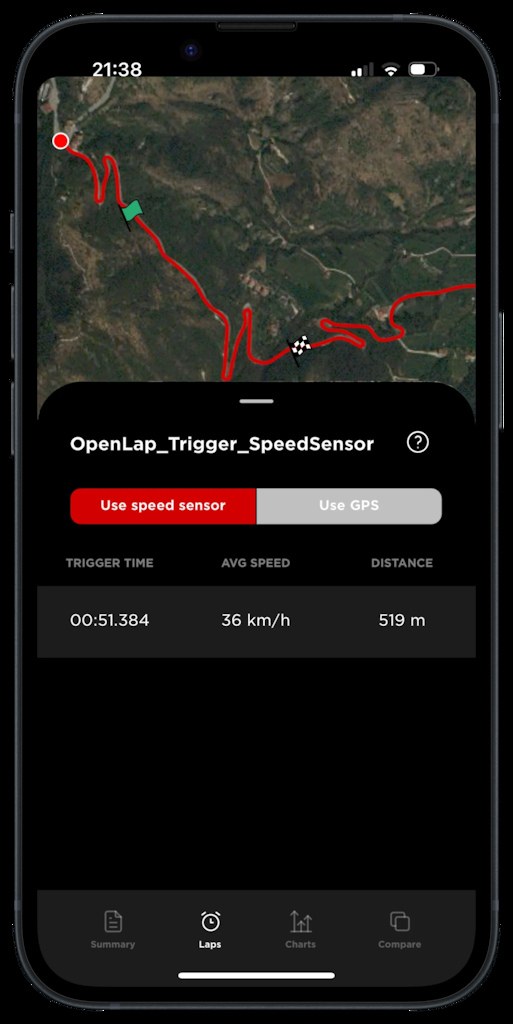
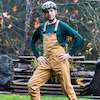
I'm Enrico the founder of BYB Tech.
When designing Chrono, we wanted to create an extremely accurate device. We are aware that the GPS reception can be poor inside a deep forest.
To avoid that:
1) We tested more than 50 different antennas. We find out the best antenna considering a lot of different factors.
2) We're using a 25Hz fast refresh rate and multi-constellation module able to link to a lot of satellites. This module is extremely pricey and it's usually not used in commercial products.
3) We provide Chrono with a set of external remote triggers. The external triggers are essentially transponders. By using the triggers placed directly on the track your timing is not dependent on the the GPS reception. You'll get exactly the time you did between the start and finish trigger. More than having the proper time, you'll still get the GPS map and a lot of relevant information on how to improve your performance.
Why do we implement the triggers combined with the GPS?
Because, given two runs, is not enough to know if your run #1 is 03:45.347 and your run #2 is 03:46:281. It's more interesting to understand where you lost time in run #2 or what you did exceptionally well in run #1!
This is a nice looking product, and I'm very much interested. Anyone who has used Strava can confirm that it is not suitable for accurate timing. GoPro is good for accurate timing when you pass certain parts of the trail but this is a manual process of going through frame by frame.
I totally understand wanting to overlay the speed profile for two laps. I have a few questions:
1) Do you blend together wheel speed and GPS data into a single channel?
2) Can you export as .csv to overlay in external software?
3) Is the accelerometer data included in the data set? e.g. can you use this to align the data (in motorsport they use track bumps to align overlays to a specific bump/kerb on the track)
1) The GPS is always present (since it's coming from the GPS), but you can decide to exploit the built-in speed sensor (thanks to a magnet placed on the wheel) to get the real distance traveled. This is very important to get accurate comparisons.
2) We're considering letting you load the Chrono files into our BYB Telemetry PC software. In this case, it will be possible to export the raw data.
3) Yes, the IMU data (3-axis gyro and 3-axis accelerometer) are included in the data set. You can consult the charts or see the shocks directly on the route (the route is changing colors according to the speed carried or the shocks perceived).
We're always available to reply to your questions also here: info@bybtech.it
Would the system also work with more than two triggers for precise split times?
(Though GPS should already give al ot of detailed insights)
Strava doesn't record any data. The device does. You could upload the GPX (or equivalent files) for the device in the article to Strava if you wanted.
Strava's interpretation of your ride data is only as good as their algorithms AND the quality of the raw data provided by your phone or GPS tracker. So it's typically gross assumptions based on minimal data of dubious value. After more than a decade on Strava, I'm finally seeing a couple of trends - I'm getting slower and buying less bikes.
By the way, the GPS of Chrono is not comparable to a smartphone's or ciclo-computer's. It's very expensive, 25Hz refresh rate, and multi-constellation. You can clearly see that classic ciclo-computer GPS lines are usually "broken and very segmented". Chrono, even at high speed provides you smooth lines.
I think there is a difference how watches and phones construct the path you traveled. My Suunto watch uses GPS data in combination with acceleration data to fill in the gaps. Phones also use GPS data but in combination with known networks in the area. Not sure how much that would help with training data but at least this is something I gathered from the phone manual. It does have acceleration sensors on board but I'm not sure whether it also uses these to contruct where and how fast you're going. A car navigation system (I'm using TomTom) tries to lock onto the nearest or most obvious road.
Either way, I'm no expert on the subject but what I'm trying to say is that along with the logged GPS data many (or all) devices use other technologies to fill the gaps. These could be accurate but it could also be that the end result appears accurate (that is, smooth) but in reality it isn't.
I use strava mostly to track maintenance intervals.
It was a site that linked to Strava and enabled you to run virtual enduro races,choosing up to 5 segments,a period of time to ride them,and a group of friends using Strava,and it provided the detailed classification for that "race".
Sadly,the creator of the site died in a kitesurf accident and since then nothing comparable is available.
I know Strava is innacurate,but this was a very simple way to organize a timed race and there's nothing even similar,to my knowledge.
Or do I have to dust off my old app project
But tell me more about that project of yours!
What is this trying to say? It's only good for "other sports" with wide tracks where there are more obvious line choices? Line choice is MTB is too narrow for this to be useful?
It also happens if they yell "training", or almost anything that implies that whatever they are doing is more important than everyone else on the trail.
(genuine question not a criticism)
Actually, 4 cores are not needed.
You need a proper antenna, proper RF matching, robust code, robust hardware, and a lot of other things...
Chrono is working very well in the woods, but for the best timing experience, you can always use the remote transponders. You can still compare routes and draw custom waypoints (based on GPS this time).